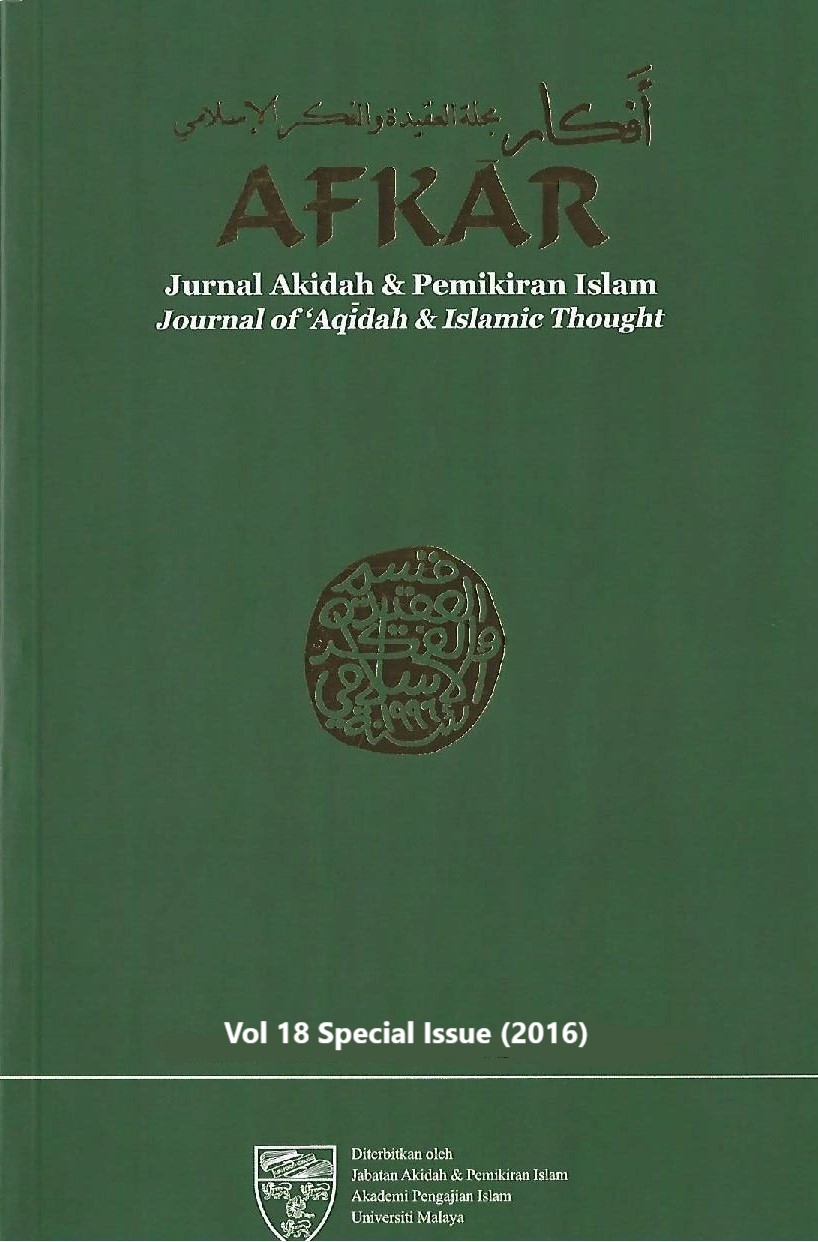Kejatuhan Pemerintahan Menurut Pemikiran Ibn Khaldūn dalam Karyanya al-Muqaddimah
Ibn Khaldūn’s Thought on the Fall of a Goverment in His Work Al-Muqaddimah
DOI:
https://doi.org/10.22452/afkar.sp2016no1.4Abstract
Ibn Khaldūn made a distinguished name of himself as a thinker in the Islamic intellectual world by means of his renowned work entitled al-Muqaddimah that contributes immensely in the field of Islamic sciences, particularly in pioneering the study of civilization; and accordingly his scholastic works were recognized by the Western scholars. His ideas were fresh and original making his works replete with knowledge that has been assayed to not only being applied as a basis for civilization but also traversed to various other disciplines such as history, social science, economics and politics. Although honoured as a leading Islamic scholar, Ibn Khaldūn was not immune from criticism. There were claims that his philosophies were treading on the verge of secularism. As such, this article aims to scrutinize the thoughts of Ibn Khaldūn pertaining to the fall of a government as well as focusing on the aspects of justice and tyranny of a falling government. Both aspects are analyzed in accordance to the authorities confined in the al-Qur’an and the Hadith as well as the views of the scholars. In order to achieve the objectives, this qualitative study is conducted through data collection method, applying library research. These data are analyzed based on inductive and deductive methods. The findings of the analysis illustrate that the ideas of Ibn Khaldūn on of the fall of a government in particular from the points of justice and tyranny are in line with the provisions sourced from the al-Qur’an and the al-Sunnah.









